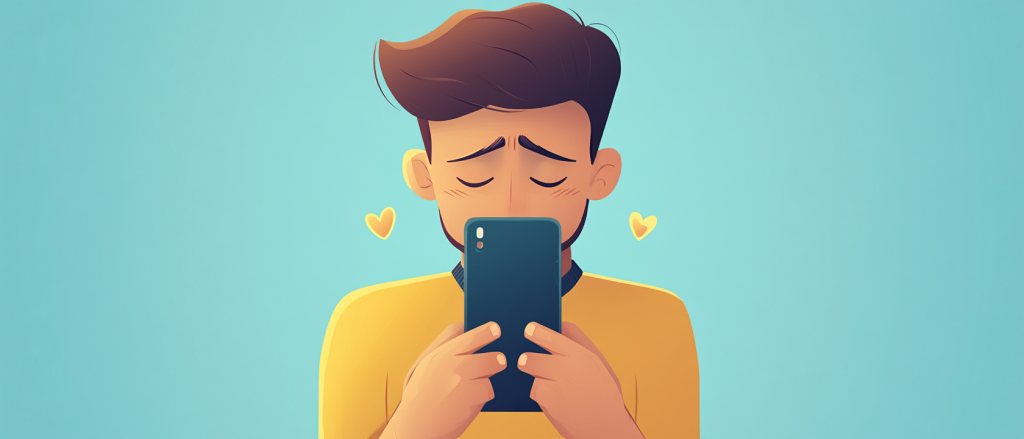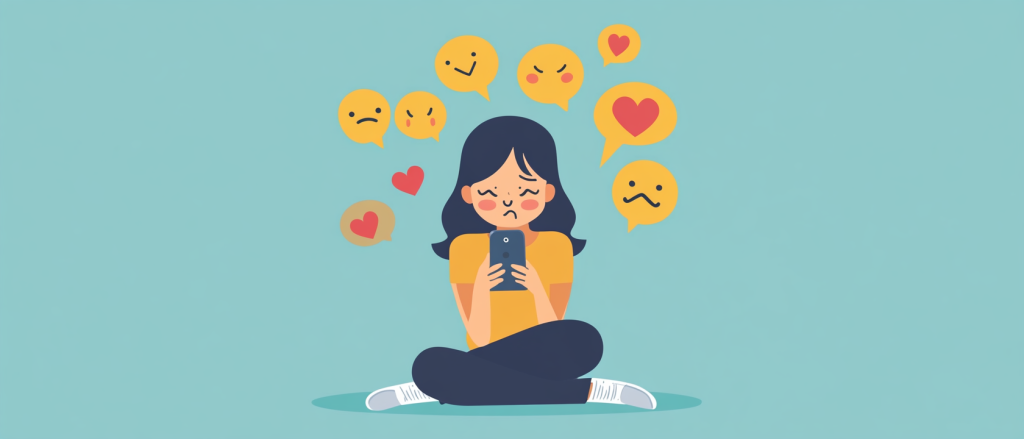In the age of hyper-connectivity, the act of unfollowing someone on social media has evolved into more than just a technical action—it’s an emotional experience intertwined with personal values, relationships, and the fear of missing out (FOMO). Whether you’re considering unfollowing a long-time friend, an influencer, or a brand, the decision can spark surprising emotional tension.
This article explores the psychology behind unfollowing, the role of FOMO, and how platforms like Facebook, Instagram, TikTok, and Easybie are reshaping this dynamic.
The Emotional Weight of Unfollowing
Unfollowing, in its simplest form, means ceasing to receive updates from a specific account on social media. However, the emotional reactions associated with this action often stem from deeper psychological factors, including:
1. Social Relationships and Identity
- Perceived Rejection: Unfollowing can feel like a rejection, even when it’s driven by content preferences rather than personal issues.
- Friendship Dynamics: In close relationships, unfollowing someone can create tension or even real-world confrontations.
- Digital Identity: The accounts we follow often reflect our interests and values, making unfollowing feel like a shift in personal identity.
2. Emotional Investment
- People often form parasocial relationships (one-sided emotional connections) with influencers and celebrities.
- Unfollowing can feel like “cutting ties” emotionally, especially when a follower has been engaged with someone’s content for a long time.
3. Cultural Pressure and Social Validation
- Social media platforms have normalized public metrics like follower counts, creating a sense of validation tied to numbers.
- The fear of hurting someone’s feelings or being seen as disloyal can make unfollowing emotionally difficult.

The Fear of Missing Out (FOMO) and Unfollowing
FOMO (Fear of Missing Out) is a powerful psychological driver that influences online behavior, including the reluctance to unfollow accounts.
How FOMO Affects Unfollowing Decisions:
- Fear of Missing Important Updates: People worry about missing valuable content, events, or trends.
- Peer Pressure: Seeing friends engage with a particular influencer or trend can trigger a sense of exclusion.
- Emotional Attachment: Followers may fear losing emotional connections with creators or communities they’ve invested time in.
- Brand Loyalty: Unfollowing a brand can feel like losing out on exclusive offers, giveaways, or insider news.
When Should You Unfollow?
While unfollowing can be emotionally charged, it can also be empowering and essential for digital well-being. Here are some signs it might be time to hit the unfollow button:
- Content No Longer Aligns with Your Interests: If the account’s focus has shifted and no longer resonates with you.
- Negative Emotional Impact: If the content triggers stress, comparison, or self-doubt.
- Overposting and Clutter: When excessive posts overwhelm your feed.
- Inconsistent Values: If the account promotes values or behaviors you no longer support.
- Manipulative Engagement: If an influencer uses clickbait or misleading content to maintain followers.
Tip: Platforms like Easybie offer customizable feed settings, allowing you to control the visibility of posts without completely unfollowing someone.
The Psychology of Unfollowing Guilt
Why do we feel guilty when unfollowing someone?
- Social Norms: Unfollowing close friends or family can feel like violating unwritten rules of loyalty.
- Reciprocity Pressure: If someone follows you, there may be pressure to follow back.
- Avoidance of Conflict: Some fear direct confrontation or awkward conversations when a mutual connection notices the unfollow.

Healthy Approaches to Unfollowing Without Guilt
If you’re struggling with unfollowing someone, consider these healthier approaches:
1. Mute Instead of Unfollow
- Platforms like Instagram and Easybie allow you to mute accounts.
- Muting hides their posts from your feed without officially unfollowing them, reducing conflict.
2. Prioritize Your Well-Being
- Remember, your feed should reflect what inspires and uplifts you.
- Unfollowing for personal peace is a form of self-care.
3. Keep It Mutual
- If possible, explain your reasons for unfollowing in real life.
- Honesty often prevents misunderstandings.
The Role of Algorithms in Unfollowing Behavior
Social media platforms have significant control over how often we see content, even from accounts we follow.
Key Algorithm Factors:
- Engagement Levels: The more you interact with an account, the more likely you are to see their posts.
- Inactivity: Some platforms reduce visibility for less engaged accounts.
- Sponsored Content: Paid posts can disrupt organic content visibility, leading to unfollows due to over-promotion.
Platforms Taking Action:
- Easybie: Offers customizable feeds where users can control who appears on their timeline without permanent unfollowing.
- Instagram: Provides insights into “most shown” and “least interacted with” accounts to help users manage their feed better.

Impact of Unfollowing on Creators and Brands
Unfollowing can be particularly impactful for influencers, businesses, and content creators who rely on follower metrics for revenue and partnerships.
1. Psychological Impact on Creators
- Validation Loss: A decline in follower count can feel demotivating.
- Pressure to Overproduce: Fear of losing followers often leads to overposting or trend-chasing content.
2. Business Impact
- Engagement vs. Follower Count: Modern platforms prioritize engagement over follower counts, encouraging authentic content instead of focusing solely on numbers.
- Content Monetization: Platforms like Easybie enable creators to monetize their content, prioritizing quality over follower quantity.
How Easybie Redefines the Unfollowing Experience
Easybie offers a user-centric approach to social media by emphasizing simplicity, privacy, and personalization:
- Flexible Feed Management: Users can easily mute, unfollow, or adjust visibility without permanently cutting ties.
- Content Control: Creators have options for monetization and audience segmentation, reducing pressure to maintain high follower counts.
- Empowerment Tools: Easybie provides privacy-focused features that allow users to curate their experience without the emotional tension linked to unfollowing.
👉 Ready to experience a healthier, guilt-free social media environment? Join Easybie and take control of your digital space today!
Conclusion: Unfollowing with Intention
Unfollowing doesn’t have to be emotionally draining. By understanding the psychological factors behind it—especially the role of FOMO and social validation—you can make more mindful choices about the content you consume.
Remember, your social media experience should inspire, educate, and connect—not create stress or guilt. Platforms like Easybie make it easier to prioritize personal well-being while staying connected in a meaningful way.
Take charge of your digital life today—curate your feed, unfollow mindfully, and embrace a more positive online experience.


